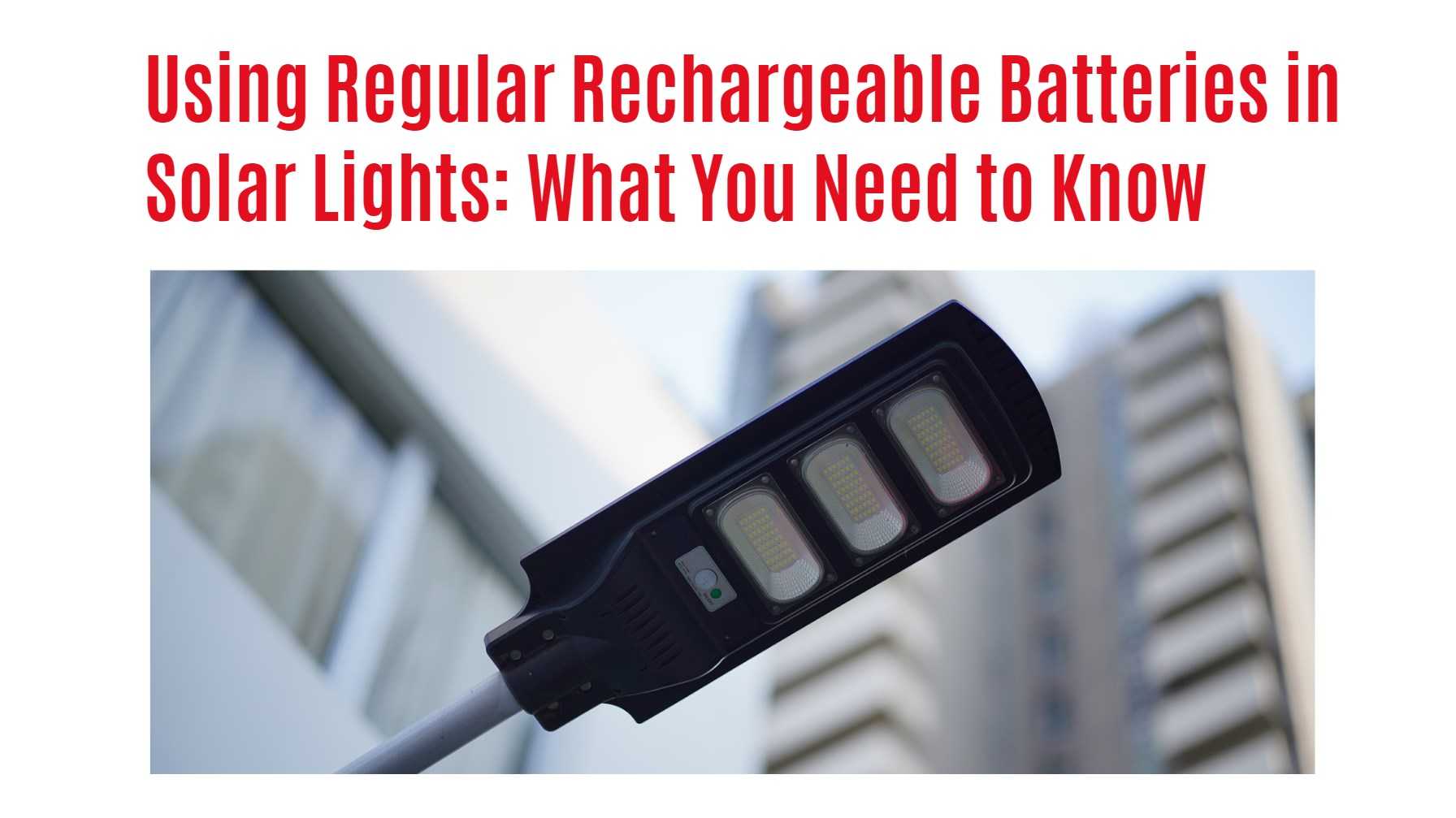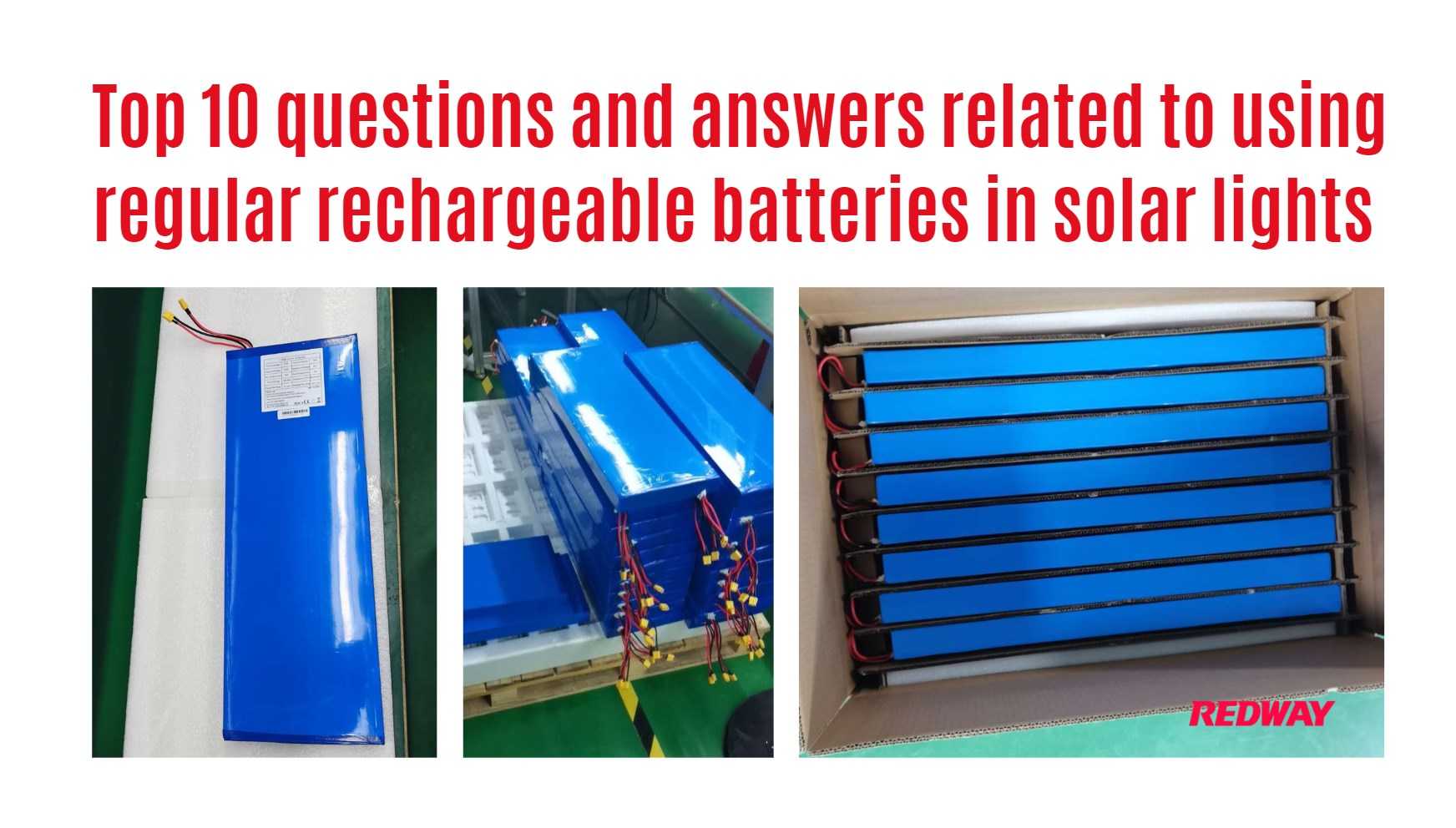Solar lights are an eco-friendly and cost-effective way to illuminate your outdoor spaces. Powered by the sun, these systems harness solar energy during the day and provide light at night. A crucial component of these systems is the rechargeable battery. In this comprehensive guide, we delve into the intricacies of using rechargeable batteries in solar lights, ensuring you make the most informed decisions for your lighting needs.
Understanding Solar Light Systems
Solar lights are designed to capture sunlight through solar panels and store energy in batteries for nighttime illumination. The efficiency and longevity of these systems depend significantly on the type of battery used. Understanding the basics of solar light systems is the first step in making the right choice for your rechargeable batteries.
Types of Rechargeable Batteries for Solar Lights
When it comes to solar lighting, not all batteries are created equal. The most commonly used types include:
Wholesale lithium golf cart batteries with 10-year life? Check here.
- Lead Acid Batteries: Known for their affordability and widespread use, these batteries are a popular choice for solar lighting systems.
- LiFePO4 (lifePO4) Batteries: These batteries offer a high energy density and excellent safety profile, making them a top choice for many solar applications.
- Nickel-Metal Hydride (NiMH) Batteries: NiMH batteries are known for their reliability and are often used in solar lighting systems for their long service life.
- Lithium-Ion Batteries: With their high energy capacity and low self-discharge rates, lithium-ion batteries are a favorite among solar enthusiasts for their performance and longevity.
Compatibility and Considerations
Choosing the right battery for your solar lights is not just about type; it’s also about compatibility. It’s essential to ensure that the batteries you select meet the voltage and energy requirements specified by the solar light manufacturer. Always consult with the manufacturer or supplier to confirm that the batteries you intend to use are approved for use with your specific solar light system.
Battery Lifespan and Factors Influencing It
The lifespan of rechargeable batteries in solar lights varies significantly depending on the type of battery and how they are used. On average, lithium-ion batteries may last less than a year, while nickel-cadmium batteries can last for 1-2 years, and nickel-metal hydride batteries can last for 3-8 years. Factors such as temperature, usage patterns, and maintenance play a crucial role in determining the overall lifespan of the batteries.
Want OEM lithium forklift batteries at wholesale prices? Check here.
How to Determine Battery Health
Monitoring the health of your solar light batteries is crucial for maintaining optimal performance. To check if the batteries need replacement, simply replace them with the same type and mAh battery. If the lights function properly after replacement, it’s a clear indication that the batteries have reached the end of their useful life.
Maintenance Tips for Extended Battery Life
Proper maintenance can significantly extend the life of your rechargeable batteries. Key practices include using batteries within their specified voltage and mAh range, avoiding complete draining, and ensuring they are stored in a cool, dry place when not in use.
Manufacturer Guidelines and Recommendations
Always refer to the manufacturer’s guidelines for specific recommendations on battery use. These guidelines are designed to ensure the best performance and longevity of your solar lighting system.
Conclusion
In conclusion, choosing the right rechargeable batteries for your solar lights is a critical decision that impacts both performance and longevity. By understanding the different types of batteries, ensuring compatibility, and following proper maintenance practices, you can maximize the efficiency and lifespan of your solar lighting system. Remember to always consult with the manufacturer for specific recommendations and to stay informed about the latest advancements in solar technology.
Frequently Asked Questions (FAQs)
To help you make the most informed decisions, we’ve compiled a list of frequently asked questions about using rechargeable batteries in solar lights:
- Can I use regular rechargeable batteries in solar lights? Yes, but ensure they meet the voltage and energy requirements and are approved by the manufacturer.
- What are the most commonly used rechargeable batteries in solar lighting systems? Lead acid, lifePO4, NiMH, and lithium-ion batteries are the most common.
- Can I use Energizer rechargeable batteries for solar lights? Yes, but NiMH or NiCD rechargeable batteries are more suitable for long-term reliable performance.
- How long do rechargeable batteries last in solar lights? The lifespan varies by type, with lithium-ion batteries typically lasting less than a year, nickel-cadmium batteries for 1-2 years, and nickel-metal hydride batteries for 3-8 years.
- Do I need special batteries for solar lights? No, but it’s recommended to use Nickel Cadmium (NiCd) and Nickel Metal Hydride (NiMH) rechargeable batteries for reliability.
- What happens when you put a regular battery in a solar light? Regular batteries can be quickly drained, leading to inefficient performance or damage.
- How are solar batteries different from regular batteries? Solar batteries are designed for solar devices, with different contents, discharge ratings, usage, price, lifespan, and maintenance requirements.
- Can you use non-rechargeable batteries in solar lights? It’s possible but not recommended due to potential corrosion and system failure.
- How can I determine if the batteries in my solar lights are dead? Replace them with the same type and mAh battery. If the lights work fine, it indicates the batteries need replacement.
- What factors affect the lifespan of rechargeable batteries in solar lights? Battery type, usage, temperature, and maintenance are key factors.







